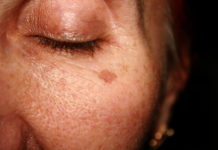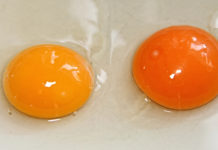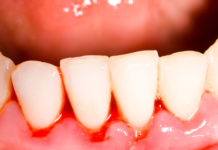In order to facilitate sexual relationship and sometimes to spice up the act, you use lubricants for intimate areas. These products act as a lubricant for the mucous membranes and reduce the pain that can occur during a sexual act if the lubrication of your intimate parts is not sufficient.
Commercial lubricants are usually made of water or silicone and are compatible with condom use, but the catch is that some of their components can have harmful effects on your vulva.
6. Why Using A Lubricant:
Whether it is to compensate for vaginal dryness or to increase the pleasure during penetration, the lubricant is perfect to combine the useful with the pleasant. These products are easy to access and can be found everywhere.
Water-based lubricants are perfect because they are cheap and you can even use them with a condom, but they are unusable under water because they dissolve quickly. They are odorless and will not stain your sheets or clothes.
Silicone-based lubricants are more expensive because they lubricate 5 times faster than those based on water and the effect last longer. Since they do not evaporate in the shower, they are perfect for sexual games or for gourmet pleasures.
5. The Lubrication
It occurs naturally in women when sexual arousal comes. This causes the walls to humidify through a secretion made by the blood vessels, but sometimes the vessels do not secrete enough so the woman is subject to vaginal dryness.
According to Dr. David Elia, “Basically, the addition of intimate lubricant is essential for a harmonious, painless and enjoyable sexual relation, and to optimize the relationship by an orgasm. Without this lubrication, the relationship will be unpleasant, even painful, and may lead to bleeding. ”
4. The Bad Effects Of Intimate Lubricants
Despite the benefits they gain during sex, it is important to note that some can be harmful since some of the ingredients can affect your health.
These ingredients can influence the pH of the woman’s intimate parts and increase the risk of infection and chance to contract bacteria or fungus.
3. The Parabens
They are a sort of preservative that is found mostly in industrial cosmetics. Their mission is to fight bacteria, but they can cause allergic reactions when they come into contact with the skin and they can disrupt the endocrine, hormonal and reproductive system.
Because of their harmful effects, parabens have been replaced by natural preservatives. Natural parabens exist, however, and can be found in the methylparaben contained in blueberries.
2. The Benzocaine
It is an anesthetic used to relieve pain caused by itching, sore throat or dental flare. In intimate lubricants, it acts as a desensitizer.
Benzocaine may be related to methaemoglobin, a blood disorder that affects red blood cells. As a result of fatigue, nausea and shortness of breath. At the moment, there are about ten cases in Canada. Babies are the most at risk of contracting this disease, but also people suffering from mucosal inflammation or people suffering from heart disorders.
1. Tips and Tricks
In order to avoid as many risks as possible, prefer natural lubricants, therefore certified organic, which contain aloe vera and linseed oil. They will not be harmful to the pH of your intimate parts and your vaginal mucous membranes.
You can also opt for vegetable oils like coconut oil to serve as a lubricant. It will emanate a pleasant smell and you will not need to clean it since it is naturally eliminated. It will also preserve your vaginal flora.


![[Photos] Why WD-40 Is Magic In Your Garden?](https://lifetonik.com/wp-content/uploads/sites/7/2019/08/WD40-Prices-Highres_Page_8_Image_0008-218x150.jpg)





![[Photos] Take A Look Of The Obama’s New Home Before It’s Banned](https://lifetonik.com/wp-content/uploads/sites/7/2019/07/Obama1-218x150.jpg)

![[Slideshow] Celebrity Homes: 21 Of The Most Luxurious](https://lifetonik.com/wp-content/uploads/sites/7/2019/07/Taylor-Swift-218x150.jpg)
![[Slideshow] More Parents Are Now Gluing Pennies to the Bottom of their Kid’s Shoes](https://lifetonik.com/wp-content/uploads/sites/7/2019/07/Keep-Them-Entertained-218x150.jpeg)
![[Photos] 20 Fashion Mistakes That Too Many Women Make!](https://lifetonik.com/wp-content/uploads/sites/7/2019/07/5-style-mistakes-that-make-you-look-frumpy-featured-218x150.jpg)



















![[Gallery] 25 Discounts For Seniors To Which You Are Entitled Without Knowing It](https://lifetonik.com/wp-content/uploads/sites/7/2019/08/EAZxECUXUAAvNZR-218x150.jpg)
![[Slideshow] Here’s the salary of every governor in the United States](https://lifetonik.com/wp-content/uploads/sites/7/2019/08/Charlie-Baker-218x150.jpg)
![[Photos] No One Will Want To Buy This House After Seeing These Pictures](https://lifetonik.com/wp-content/uploads/sites/7/2019/08/terrible-real-estate-photos-2-5c35e727c9f95__700-218x150.jpg)



